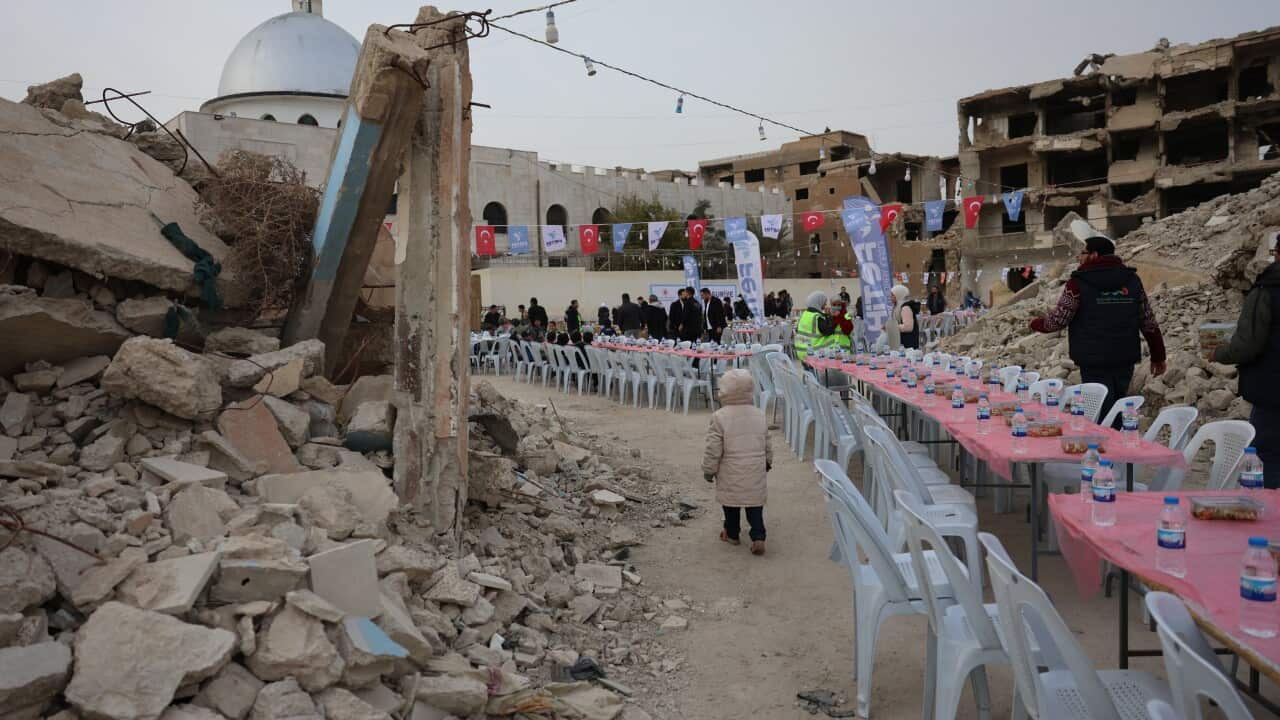If you meet anyone from Australia's agriculture sector, they will tell you the two biggest challenges they face are market volatility and climate change. There's also the very real concern that droughts will become more frequent, plus the cost of farming is not getting any cheaper.
Professor Salah Sukkarieh believes he might have a solution for these problems.
“The whole idea is can we use robots and sensors to help farmers do more on their land but do so in a much more eco-friendly manner,” he told SBS Arabic24.
The Sydney University professor of Robotics and Intelligent systems and his team are working with Australian farmers to help grow their crops in smarter and more efficient ways.
His research involves deploying drones and self-driving farmbots that can collect data, herd animals, undertake precision seeding, intelligent spraying and chemical free weeding. Born to a family of Arab migrants from Jordan and Lebanon who came to Australia in 1969, Salah Sukkariah grew up in Granville in western Sydney.
Born to a family of Arab migrants from Jordan and Lebanon who came to Australia in 1969, Salah Sukkariah grew up in Granville in western Sydney.

Dr Salah Sukkarieh (right) poses with one of his farmingbots Source: Supplied
He joined Sydney University in one of their first robotics classes, and for the past 20 years, he has been researching robotics in the agriculture sector.
“We are not talking about very large machines that you would find now with farmers” Professor Sukkarieh explains.
“We are talking about much smaller machines, two or three times bigger than a lawnmower.”
He says he hopes that this technology will be available at a reasonable cost to small-holder farmers as well. “They are very small, very light but they are driven by batteries, they are very energy efficient and they can work 24 hours, seven days a week”.
“The problem that we have is by 2050 we are going to have 10 billion people on the planet, and we can’t keep the same practices in agriculture as we do now because we will end up ruining the environment” Dr Sukkarieh explains. Australia has been hit by two severe droughts since its federation; between 1895 and 1902 during which the Darling and Murray Rivers ran dry, the other drought occurred between 1996 to 2010 and severely affected most southern cropping areas.
Australia has been hit by two severe droughts since its federation; between 1895 and 1902 during which the Darling and Murray Rivers ran dry, the other drought occurred between 1996 to 2010 and severely affected most southern cropping areas.

One of machine developed by Dr Sukkarieh and his team in action Source: Supplied
More recently, ongoing drought conditions have been Prime Minister Scott Morrisson's number one priority since taking office in August.
A $5 billion fund was set up for drought-hit farmers in October with the government telling farmers the drought conditions are not expected to lift until autumn next year.
NSW Australian of the Year finalist
Among his many awards, Professor Sukkarieh was one of four finalists in the NSW Australian of the Year Award in 2018.
“I was shocked,” he said. "Especially when you see the other nominees and you compare yourself to them, it’s a great honour a privilege.”
His ambition doesn’t stop at the national level; he hopes that other countries in the region will benefit from the technology he is developing with his team in the university.
“There are people who are finding it very hard to feed themselves because they lack the support on the farm,” the Professor says.
He has refused a couple of employment offers from big companies because he says he wants the technology to be available to small-holder farmers as well as big farmers.
“We want to get robotics down to the cost of a vacuum cleaner.”
Listen to the full Audio in Arabic above




